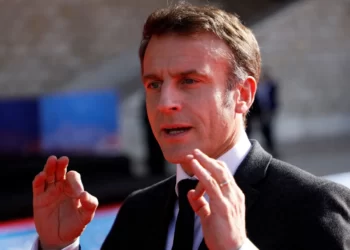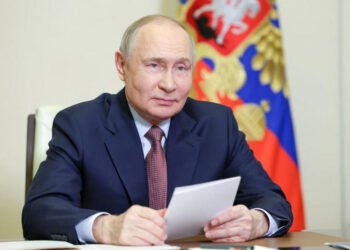The European Union has imposed sanctions on seven individuals and three entities it said are responsible for efforts to destabilise Moldova’s democracy, including through vote-buying and political bribery linked to the country’s 2024 presidential election and referendum on EU accession.
In a statement on Tuesday, July 15, 2025, the European Council said that those sanctioned were engaged in “actions aimed at destabilising, undermining or threatening the sovereignty and independence as well as democracy, the rule of law and stability of the Republic of Moldova.”
Among those targeted are figures closely associated with Ilan Shor, the exiled pro-Russian Moldovan businessman and political figure already under EU sanctions. Shor is accused of funding political operations from abroad and leading efforts to spread disinformation.
The council named Shor’s Victory political bloc as one of the three entities sanctioned. It accused the bloc of running orchestrated campaigns to buy votes and spreading misinformation during the EU referendum, as well as bribery to corrupt several politicians from the Republic of Moldova.
Shor’s political party, SOR was outlawed in 2023, but a year later he launched a new political bloc from Moscow called Victory/Pobeda, which is one of the three entities proposed for sanctioning by the EU.
In October 2024, Moldovans voted ‘yes’ to constitutionally codifying their goal to join the EU by a razor-thin margin amid accusations of Russian meddling.
Another group, the Cultural Educational Centre of Moldova, was listed for facilitating interference in the elections.
According to the EU, the Cultural Educational Centre of Moldova, was distributing free vouchers to voters transported to a Moscow polling station, “while simultaneously promoting the ‘Card of the Citizen of the Republic of Moldova’ in the Russian Federation’ propaganda program.”
The third entity, A7, was cited for its links to Russian political influence operations.
Those listed will face asset freezes and travel bans across the EU, the council said.
This is the second time the EU has used its special sanctions system for Moldova, which was set up in 2023 at the request of the Moldovan government. It comes as the country faces growing threats linked to Russia’s war in Ukraine.
EU restrictive measures were introduced in April 2023 at the request of the Republic of Moldova in order to target persons responsible for supporting or implementing actions which undermine or threaten its sovereignty and independence.
Efforts to destabilise Moldova have noticeably increased since the beginning of the Russian war of aggression against Ukraine, and represent a direct threat to the stability and security of the external borders of the EU.
The council said that the EU remains unwavering in its support for the Republic of Moldova and its peace, resilience, security, stability, and economic growth in the face of destabilising activities by external actors.
It added that destabilisation attempts would be met with firm measures.
23 Individuals, 5 Entities Total Sanctions
With Tuesday’s announcement, a total of 23 individuals and five entities have been sanctioned under the Moldovan government.
EU officials said that the listings send a clear signal to actors attempting to undermine the country’s pro-European trajectory.
Those listed are subject to an asset freeze. It is also prohibited to make available funds or access economic resources to them, either directly or indirectly.
Additionally, a travel ban applies to the natural persons listed, preventing them from entering and transiting through the territories of Union Member States.
The move comes as Moldova, a former Soviet republic, continues to strengthen its ties with the EU.
The country was granted candidate status in 2022 and began accession talks last year.
READ ALSO: Asare Faults Minority’s Objection To Mahama’s State Lands Freeze























